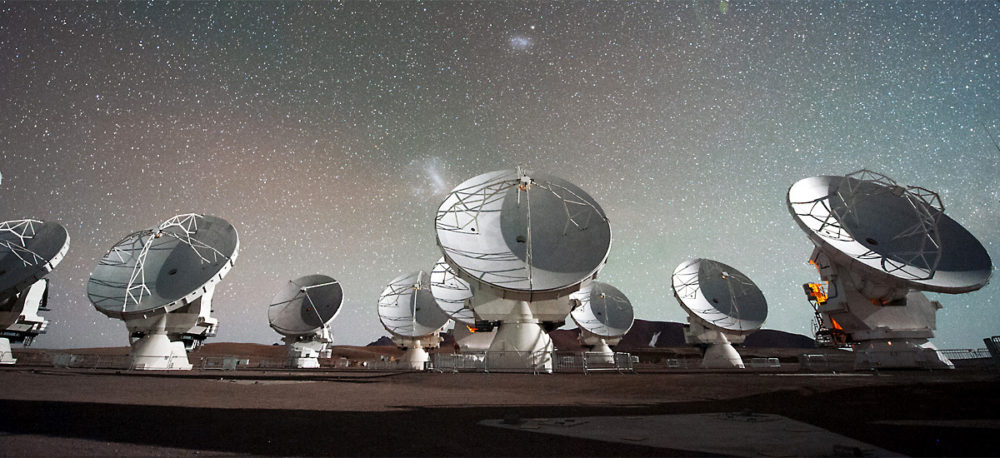 Inside the platform of the massive Arecibo Radio Telescope, once the largest radio telescope in the world. Arecibo Observatory/Paulo Friere
Inside the platform of the massive Arecibo Radio Telescope, once the largest radio telescope in the world. Arecibo Observatory/Paulo Friere
astronomy
 Inside the platform of the massive Arecibo Radio Telescope, once the largest radio telescope in the world. Arecibo Observatory/Paulo Friere
Inside the platform of the massive Arecibo Radio Telescope, once the largest radio telescope in the world. Arecibo Observatory/Paulo Friere
 Photo: pedrik/Flickr
Photo: pedrik/Flickr
 Photo: European Southern Observatory/CC-BY 4.0
Photo: European Southern Observatory/CC-BY 4.0